The Scottish equivalent of the National Trails in England and Wales, the Great Trails explore swathes of glorious countryside from the Mull of Galloway in the far south to Inverness, the self-styled ‘Capital of the Highlands’. The 29 long distance routes vary in length from 24 to 210 miles (c. 40 to 340km) and can be completed in anything from a couple of days to a couple of weeks. The longer trails can also be broken down into more manageable sections to suit families, novice walkers or those pushed for time.
Plan a day walking trip or multi-day hike along one of Scotland's spectacular Great Trails with our expert travel guide.
Fancy exploring more walking routes in Scotland? Take a look at our selection of the best walks in Scotland – each route contained a plotted OS map.
What are Scotland’s Great Trails?
Four of the earliest Great Trails were established by Scottish Natural Heritage (SNH) and were known as Long Distance Routes. The West Highland Way was the very first, opened in 1980, followed the next year by the Speyside Way, then the Southern Upland Way (1984) and the Great Glen Way (2002). In 2010, the SNH decided to encourage local proposals for new long distance paths, renaming them Scotland’s Great Trails. Since then, 25 further routes have been awarded Great Trail status, meeting a range of criteria including clear waymarking, good maintenance, access to amenities and, of course, stunning scenery. While most are for walkers, some can be used by cyclists and horse riders, and even canoeists and kayakers.
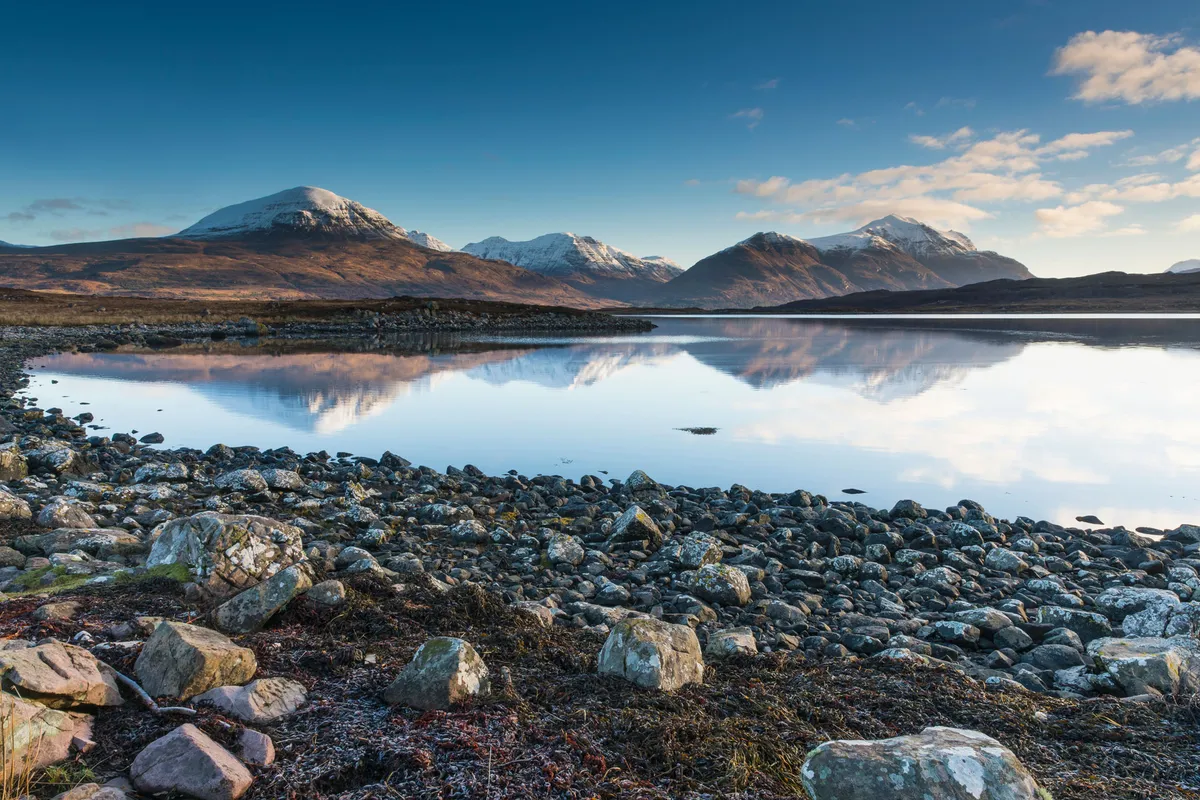
There’s a Great Trail for everyone. Some trace rivers from source to sea; some wind along a coastline; some follow a transport route from the past such as a canal or disused railway line; some head into the wild majesty of mountains, lochs and glens; while others take travellers back in time to explore Scotland’s rich history.
You may also like
Can you walk anywhere in Scotland?
The Land Reform Act (Scotland) 2003 gave everyone the right to roam responsibly on most land in Scotland on the understanding that they follow the Scottish Outdoor Access Code. The code is based on three key principles:
- Respect the interests of others.
- Care for the environment.
- Take responsibility for your own actions.
A brief guide on how to follow the countryside code
Best Scottish Great Trails to hike
Here is a selection of five Scottish Great Trails to explore with walking route suggestions. The full list of Scotland's Great Trails can be found at the end of this article.
Speyside Way
Distance/ascent: 66.5 miles (107km)/1245m
Scotland’s second oldest Great Trail runs from Buckie on the Moray Firth to Spey Bay from where it follows the River Spey valley south to Aviemore. There’s also a spur from Ballindalloch to Tomintoul, taking walkers along the western edge of the Cairngorms and some of Scotland’s highest peaks. The path passes numerous distilleries, for the Spey is the birthplace of legal whisky production in Scotland. For those wanting to forge a path beyond Aviemore, the walk’s planned extension to Newtonmore along the route of the partially restored Strathspey Railway is now open as far as Kincraig.
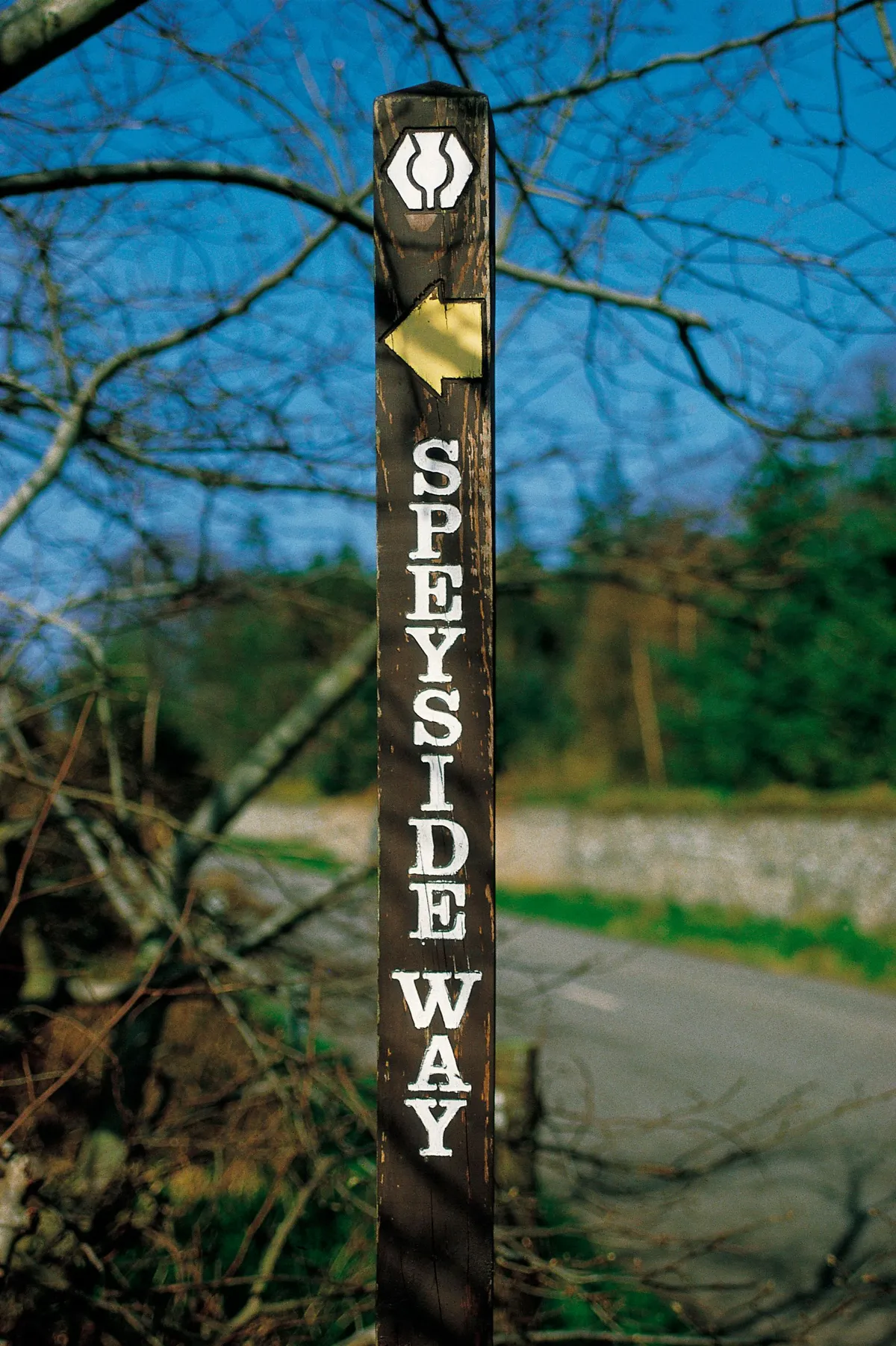
Refreshment/accommodation
The little Nethy House tearoom and café in Nethy Bridge is famed for its scones and has self-catering rooms for visitors who’d like to stay overnight. The multi-award-winning Craggan Outdoors near Grantown-on-Spey features some great value-for-money options including a 27-bed bunkhouse, 6-bed bothy and 4-bed summerhouse.
Walking options
For a multi-day trek, take on the first three (and a bit) sections from Buckie to Aberlour, from where there’s a bus service to Elgin railway station. For an easy day-walk try the six-mile (9.5km) mostly forest-side section between Aviemore and Boat of Garten, returning along the riverside or by train.
Visit, speysideway.co.uk for more information
Fife Coastal Path
Distance/ascent: 117 miles (188km)/1865m
Starting at Kincardine by the Firth of Forth the path enjoys views out over sea and firth practically all the way as it heads through Kirkcaldy, Anstruther and St Andrews to Newburgh on the Firth of Tay. This is a walk for lovers of little fishing villages, ruined castles and lonely sandy beaches. Seabirds can also be seen in abundance and in summer much of the route is carpeted with coastal flora. A highlight for those who enjoy a challenge is the (optional) Elie Chainwalk at Kincraig Point – a walkway carved into the cliff-face with nothing but a series of chains to hang on to.
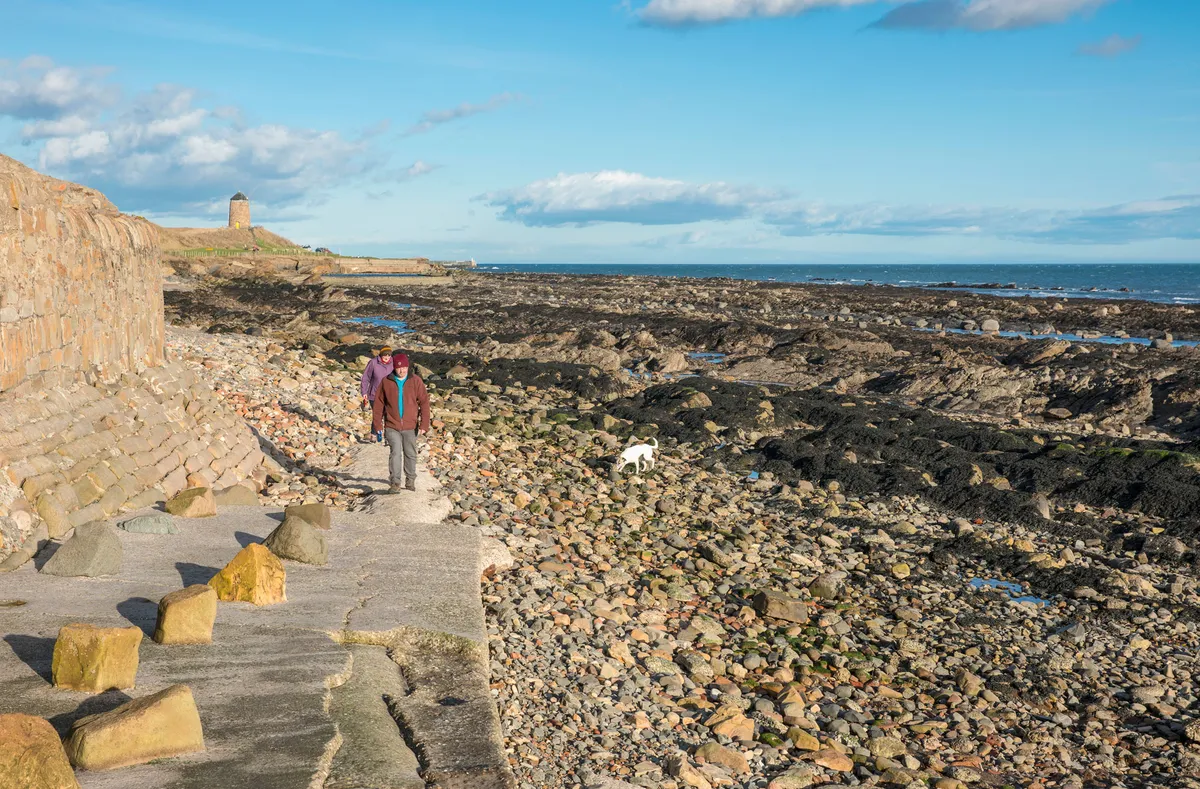
Refreshment/accommodation
The Pittenweem Chocolate Company and Cocoa Tree Café in Pittenweem makes an excellent pitstop for a coffee and some delicious artisan chocolate. The Forth Bay Guest House at Leven is right on the beach and provides a homely Scottish b&b experience with lush sea views thrown in.
Walking options
For a multi-day hike, try the 57-mile stretch from Burntisland to Leuchars (both have railway stations) which includes the Elie Chainwalk. For a great day out from Dundee, cross the Tay Road Bridge and head east through Tayport to the Tentsmuir Forest at the mouth of the Tay or west along the beautiful southern shore of the firth.
Visit, fifecoastandcountrysidetrust.co.uk for more information
Romans and Reivers Route
Distance/ascent: 52 miles (84km)/1695m
As its name suggests, this Great Trail offers two historical walks in one. While passing through countryside made notorious by the reivers – lawless cattle raiders and ne’er-do-wells who lived on the Scotland/England border – the route also follows roads built by the Romans many centuries before. Heading out from Ae Forest, the path takes a roller-coaster ride through the Southern Uplands along forest tracks, country lanes and drove roads to Hawick. Developed by the British Horse Society Scotland, the route is just as enjoyable for walkers and mountain bikers as horse riders.
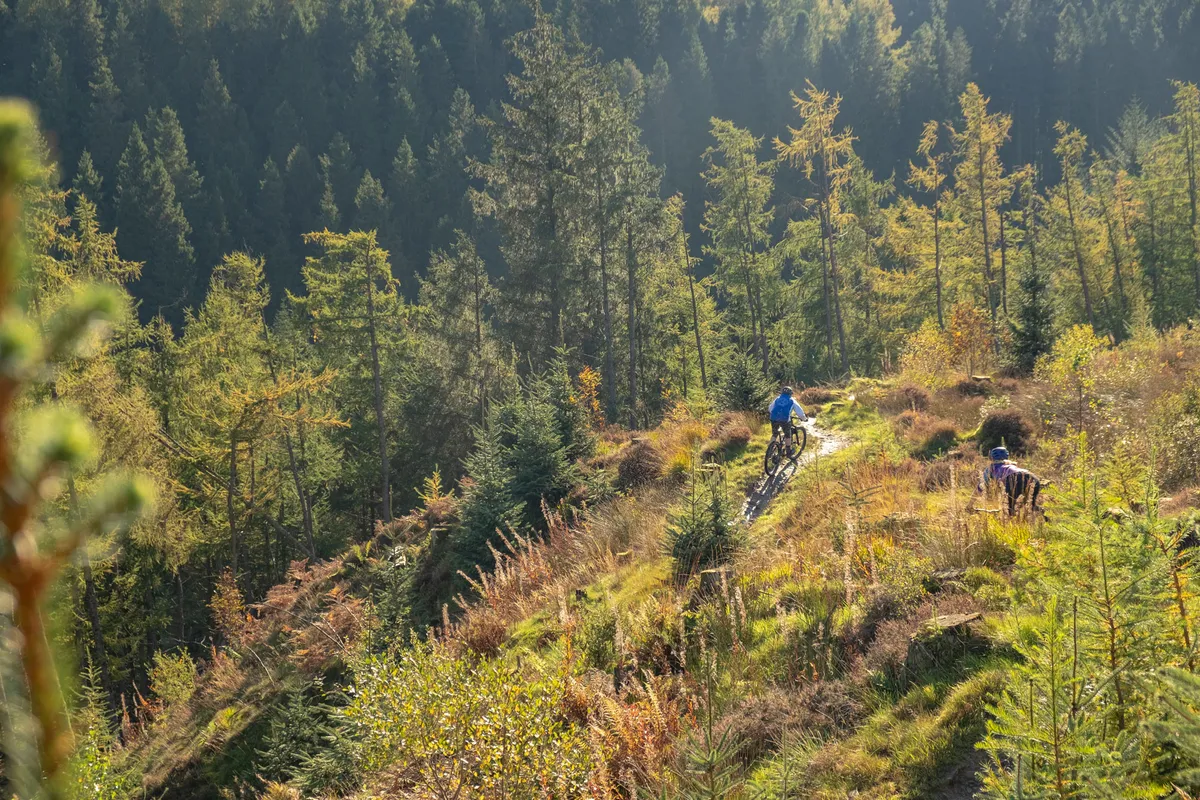
Refreshment/accommodation
Since the route passes through very few settlements, there are just two hubs where cafés, restaurants and places to stay abound – Hawick and (a mile from the path) Moffat. However, you’ll find a charming Tibetan tea room as well as accommodation and a campsite at the Samye Ling Buddhist monastery in Eskdalemuir. The monastery is currently closed until the end of the year, so please check before you go.
Walking options
The eastern portion of the route from Hawick to Moffat provides the best public transport links for a multiple-day hike. For a solo day’s outing, head for Ae Forest where circular walks of varying lengths can be enjoyed by returning to the start via woodland tracks.
Visit southofscotlandcountrysidetrails.co.uk for more information
Forth & Clyde and Union Canal Towpath
Distance/ascent: 66 miles (106km)/158m
One of the lesser known coast-to-coast walks, this entirely off-road romp across Scotland’s Central Belt sets out from Bowling, west of Glasgow, and doesn’t stop until it reaches Edinburgh’s Lochrin Basin. Keeping to the towpaths of the two canals the whole way, it’s a route that will warm the heart of any hill-averse walker, with barely an incline to trouble the knees. Highlights include a number of impressive aqueducts, Roman forts on the Antonine Wall, and the unique Falkirk Wheel which connects the two canals by lifting boats 35m up into the air.

Refreshment/accommodation
Walkers are never far from places to wet their whistle or lay their heads, with Glasgow and Edinburgh offering a plethora of venues to suit all tastes. At Linlithgow, drop in at the Bridge 49 Cafe Bar & Bistro whose fun outdoor dining pods grace the banks of the Union Canal.
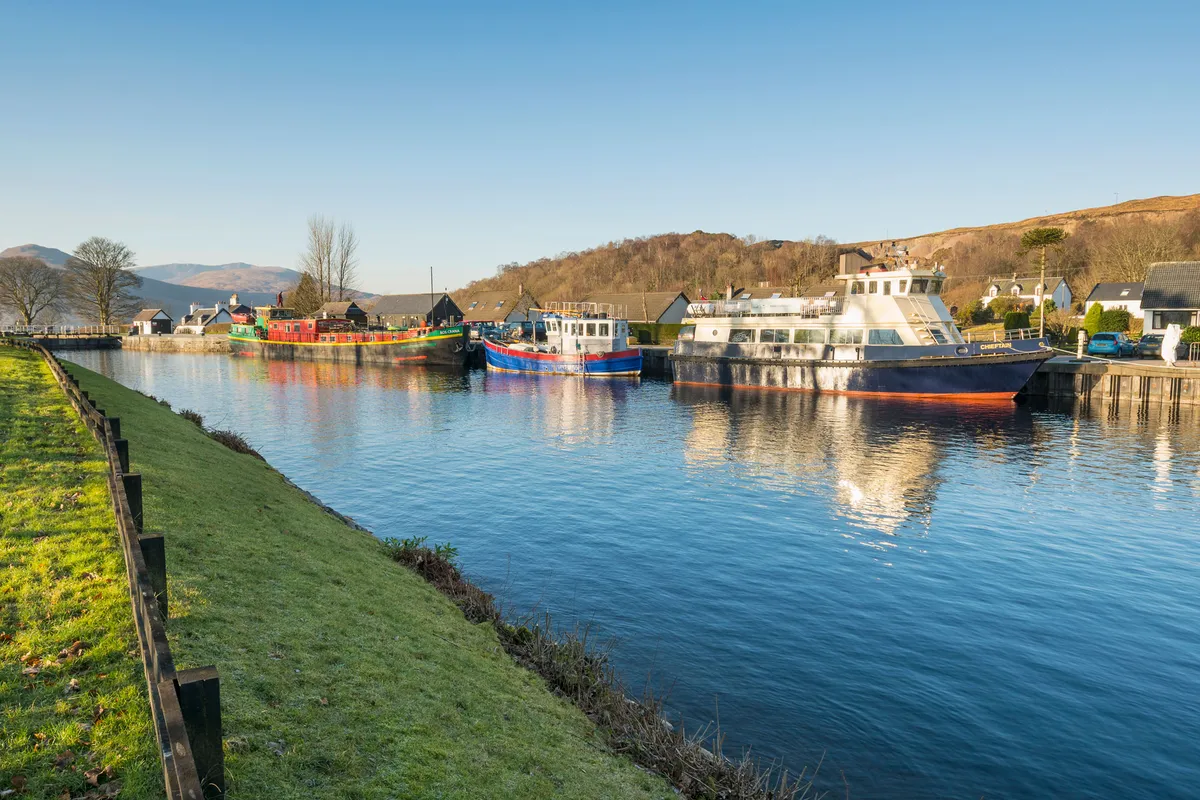
Walking options
A fine circular day walk can be had by heading out from Auchinstarry along the canal towpath and returning via the Antonine Wall and the remains of Roman forts. Options for longer walks are almost endless – try starting at either end and finishing where the canals join at the Falkirk Wheel.
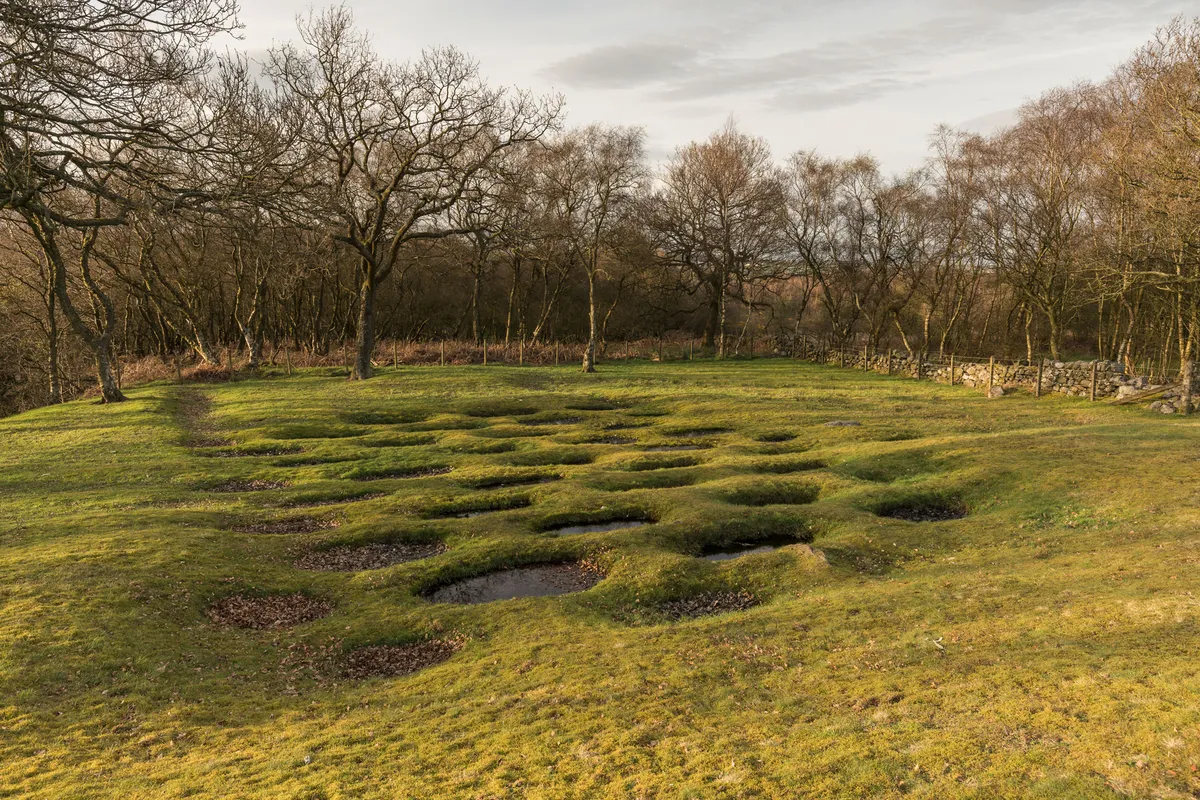
Visit scottishcanals.co.uk for more information
West Highland Way
Distance/ascent: 96 miles (154km)/3155m
Celebrating its 40th anniversary this year, this iconic walking route is the grandmother of all Scottish long-distance trails. Starting in Glasgow, Scotland’s most populous city, it heads north into the Loch Lomond & The Trossachs National Park, crosses the exposed wilderness of Rannoch Moor and passes the splendour of Glen Coe before arriving at Fort William, a town lying in the shadow of Ben Nevis, Britain’s highest mountain. Here it meets the southern extremity of two more Great Trails – the Great Glen Way and the Great Glen Canoe Trail – for those who want to continue their adventure across Scotland.
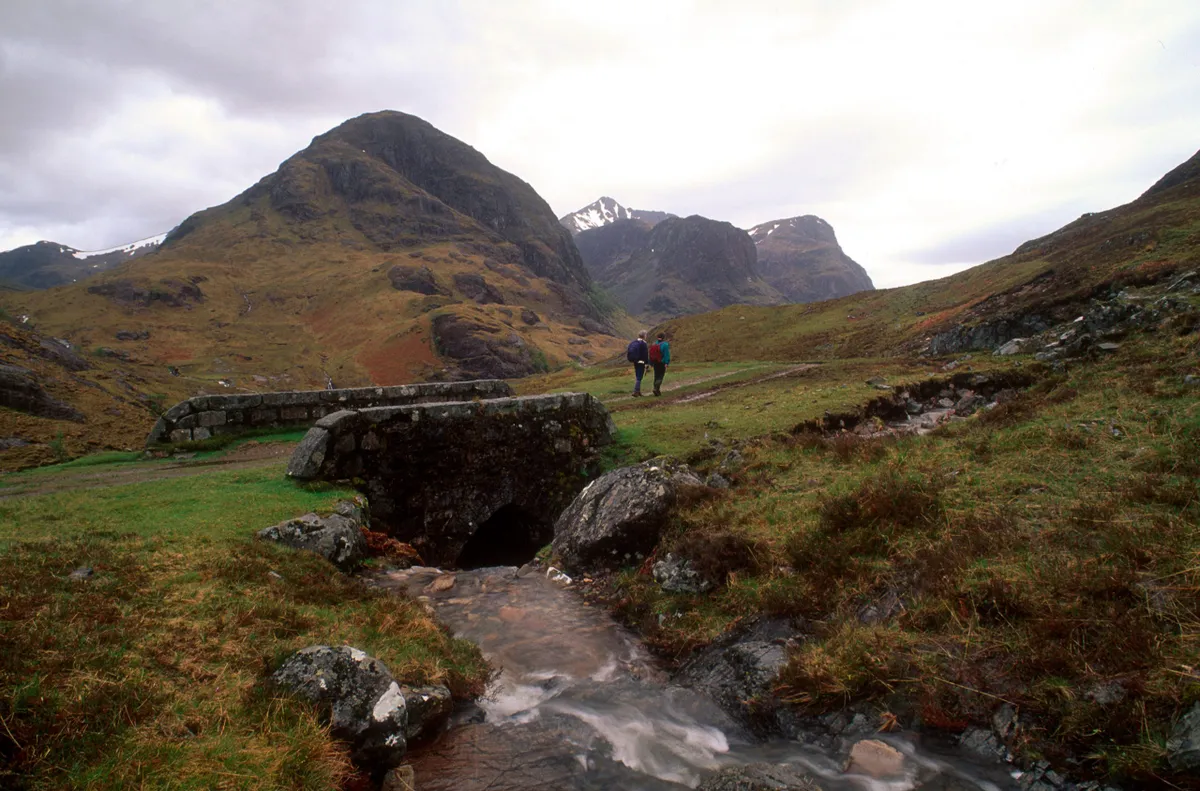
Refreshment and accommodation
Services are widely available virtually the whole length of the route. For something out of the ordinary, try a meal or a night at Station House, on the platform at Corrour, Britain’s highest railway station. It’s the nation’s remotest restaurant with rooms and is only accessible by train or on foot.
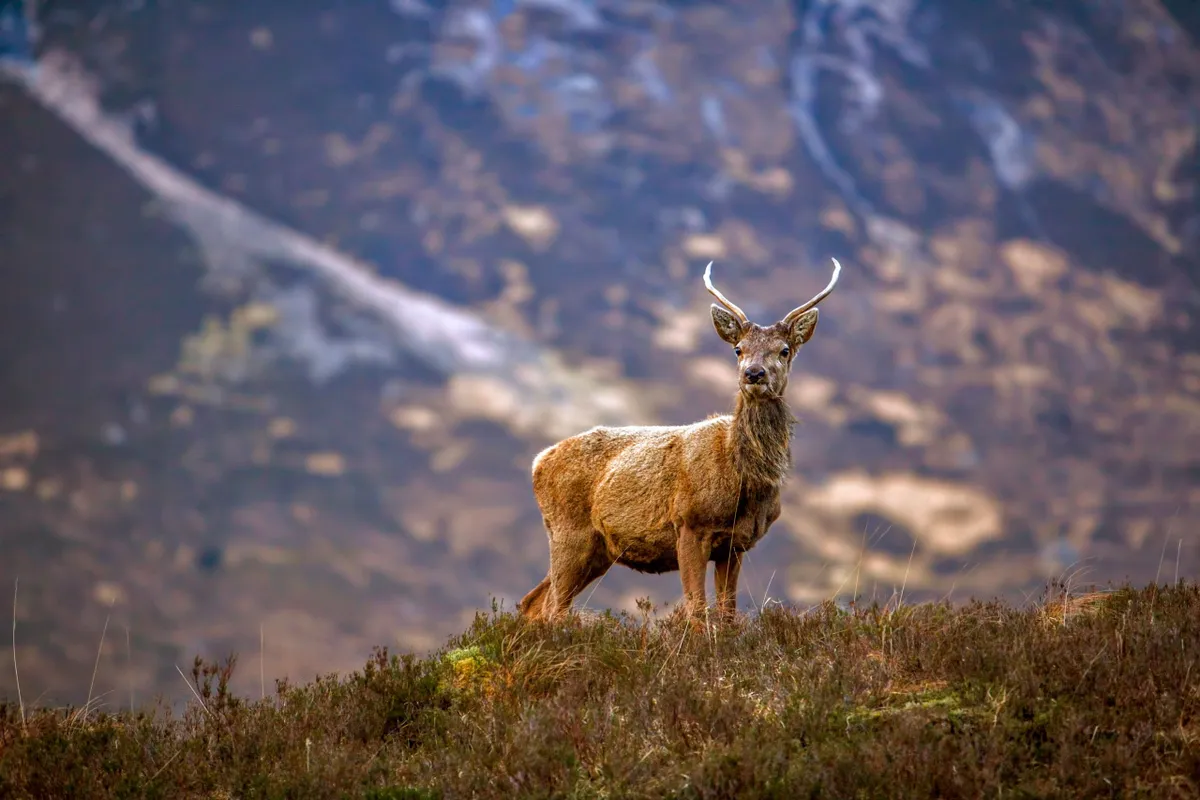
Walking options
While the route is often busy with walkers, the more northerly sections from Tyndrum to Fort William (both with railway stations) provide the best multi-day getting-away-from-it-all experience. For a single day’s outing, head for Balmaha and the eastern shore of Loch Lomond, perhaps taking in a boat trip to Inchcailloch, an island nature reserve and final resting place of many members of the colourful Clan Macgregor.
Visit westhighlandway.org for more information
The other 24 Great Trail walking routes
- Annandale Way
- Arran Coastal Way
- Ayrshire Coastal Path
- Berwickshire Coastal Path
- Borders Abbeys Way
- Cateran Trail
- Clyde Walkway
- Cross Borders Drove Road
- Dava Way
- Formartine and Buchan Way
- Great Glen Canoe Trail
- Great Glen Way
- John Muir Way
- Kintyre Way
- Loch Lomond & Cowal Way
- Moray Coast Trail
- Mull of Galloway Trail
- River Ayr Way
- Rob Roy Way
- St Cuthbert’s Way
- Southern Upland Way
- The Great Trossachs Path
- Three Lochs Way
- West Island Way

